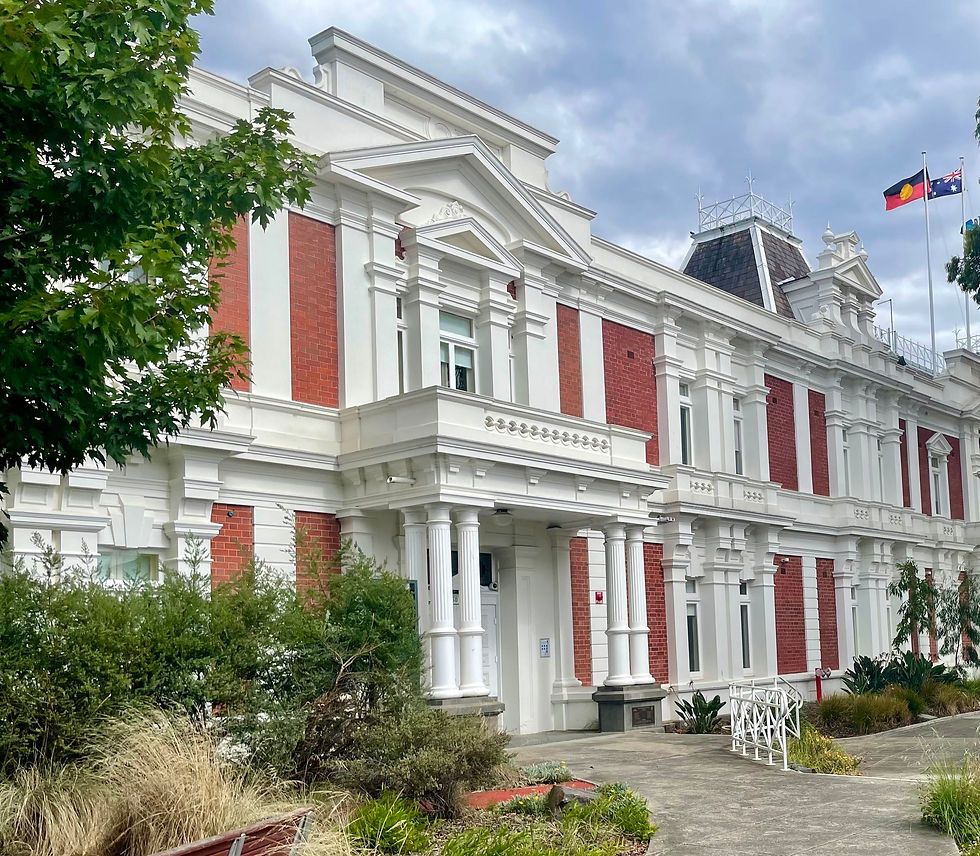Secret Dealings: notes on the TPP.
- Serena O'Meley

- Feb 5, 2018
- 6 min read
#BatmanByElection [First published on Facebook 4 February 2018]

According to the Australian Financial Review, “Labor faces a dicey internal battle over its handling of the rescued trans-pacific trade deal which threatens to inflame its progressive, anti-trade and union base ahead of several potential byelections including a likely nail-biter contest against the Greens in Victoria.”
The extent to which the TPP will truly affect the outcome of the Batman byelection is dependent upon public awareness about the issues, combined with the trade credentials of the two main candidates, Alex Bhathal (Greens) and Ged Kearney (ALP) and their respective parties. Let’s begin exploring this question with a brief overview of the TPP.
Revival of the TPP
The Trans-Pacific Partnership Agreement has risen from the dead a year after the Trump administration pulled out of the original 12 country deal. The text of the agreement is still secret but one thing we do know for certain - the TPP11 will still contain Investor State Dispute Settlement (ISDS); a pernicious clause which allows multinational corporations to sue the Australian government if our laws interfere with their profits. This is bad news for the environment, for workers, for health, for women, for the sovereign rights of Aboriginal peoples and for a broad range of other public policy matters. The costs and potential damages attached to such cases are staggering. It cost Australia $50million and five years to successfully defend its plain packaging laws against a US$4.2 billion ISDS case brought by tobacco giant, Philip Morris. While the matter was being decided other countries held back from passing similar laws, which is typical of the “chilling” effect that such costly arbitrations can have on public interest legislation. It is truly appalling that the Liberal Party has no qualms about signing off on such reckless provisions in trade agreements and has already done so in three recent bilateral agreements.
Ged Kearney and the ALP
Ged Kearney, in her role as the President of the Australian Council of Trade Unions (ACTU) is fully aware of the dangers of the TPP and has actively campaigned against ISDS for many years. In this video of a joint rally against the TPP and the China-Australia Free Trade Agreement (ChAFTA), taken in front of the ALP National Conference in 2015, Ged Kearney gives a powerful speech demanding transparency in trade agreement negotiations and calls for the ALP to be a party of the people and of workers. “We don’t want trade agreements to trade away our sovereign rights, which is what an ISDS clause does ... undermining the very core of our democracy; for us to have our governments, who we elect, to make laws in our interests.”
Ged Kearney points out that the new TPP11 will lower the barrier to skilled migrant classes from Canada, Mexico, Chile, Japan, Malaysia and Vietnam in 435 occupations without a requirement for jobs to be advertised first to Australians. She notes that there is no information about how these workers would be protected from exploitation once in Australia or what impact this migration would have on local employment.
The ALP lost its clarion internal voices against undemocratic free trade agreements with the 2016 retirements of the former member for the Division of Fremantle, Melissa Parke and former member for Wills, Kelvin Thomson. If Ged Kearney were elected to Parliament could we expect her to step into this vacuum and with what party support?
The Labor Party, as a whole, has been very slow to come to grips with the dangers of free trade agreements, which are broadly supported by the right wing of the party. In response to community pressure, then Shadow Minister for Trade and Investment, Senator Penny Wong, released a clear statement of opposition to ISDS in June 2016 but only went as far as saying that the party would seek to renegotiate any trade agreement which contained such clauses. This is a practical impossibility when one considers the complexity of a single nation trying to renegotiate with ten other countries. The TPP11 countries hope that the United States will join the trade pact later, with relevant proposals from earlier negotiations put on ice in anticipation.
Upon the release of the TPP11, current Shadow Minister for Trade and Investment, Jason Clare, claimed that without the United States the TPP is still “dead”. A week later he had dropped that line, instead demanding independent economic modelling of the deal citing support for that idea from a range of organisations, including the Productivity Commission (a body which, itself in 2010, recommended that trade agreements not include ISDS - see footnote below). The ALP has consciously not stated whether it will oppose the enabling legislation for the TPP11 after the agreement is signed in March. The ALP has been silent on ISDS. According to Jason Clare, “If the deal is good for Australia and Australian jobs – Labor will back it.”
Alex Bhathal and the Greens
I have not been able to find any public statements from Alex Bhathal about the TPP.
The Greens national campaign on trade agreements was for many years ably carried by Greens Senator Peter Whish-Wilson, whose early involvement is demonstrated in this 2015 media release. Both he and former Senator, Scott Ludlam, have spoken at numerous public meetings and rallies on the TPP over the years. This 2015 address to the Senate by Scott Ludlam about Trojan Horse clauses (or ISDS) in the TPP is still fresh and relevant. The speech was made in support of a Bill introduced by Peter Whish-Wilson to ban ISDS in all future trade agreements.
The Greens’ Bill to ban ISDS was an important strategic intervention which helped rally the public around the most understandable and dangerous provision of the TPP. The Bill was ultimately not passed and it is instructive to note the ALP’s response. Despite the ALP’s view that ISDS provisions are not required in trade agreements, they supported the government, stating that, “In our view it is not desirable to radically constrain the executive’s treaty- making power in the manner proposed by this bill.” (Report - Trade and Foreign Investment (Protecting the Public Interest) Bill 2014, p.21).
Early in 2017 the Greens, through their current Trade and Finance spokesperson, Senator Sarah Hanson-Young, reaffirmed their commitment to reforming the treaty negotiation process and again sought to reintroduce a Bill to ban ISDS clauses from all future trade agreements. Most recently Sarah Hanson-Young has described the TPP11 as, “a dead end for Australian workers and the Australian public. It’s all devil no detail.”
Conclusion
Ged Kearney’s credentials on advocating for public policy objectives in relation to free trade agreements are unimpeachable but the ALP has some way to go before it will have the same credibility on this issue. The Greens have fought hard for many years to hold the government and ALP to account on trade agreements, but their candidate, Alex Bhathal, has no public profile in this policy area. Over the coming weeks and months it is up to the community in the electorate of Batman to keep raising the issue of the TPP to gain a firm commitment from the ALP to oppose the TPP enabling legislation and seek a commitment from the Greens candidate to demonstrate an understanding of trade issues and personally advocate on this issue.
To demand release of the TTP text, a Senate Inquiry and an independent assessment of the economic, health and environmental impacts of the TPP, please sign this petition.
Further information:
Australian Fair Trade and Investment Network Stop the TPP Australia - Public Facebook Group GetUp! - short video on the Zombie TPP It’s Our Future - Kiwis Concerned about the TPPA
Footnote:
Australian Productivity Commission, Australia's bilateral and regional trade agreements, at pp xxxvi and xxxviii; also see chapter 14 of the report. Key Findings: (a) There does not appear to be an underlying economic problem that necessitates the inclusion of ISDS provisions within agreements. Available evidence does not suggest that ISDS provisions have a significant impact on investment flows. (b) Experience in other countries demonstrates that there are considerable policy and financial risks arising from ISDS provisions. Recommendations: That Australian Governments should seek to avoid the inclusion of investor-state dispute settlement provisions in BRTAs that grant foreign investors in Australia substantive or procedural rights greater than those enjoyed by Australian investors. (Cited in (Australian Productivity Commission, Australia's bilateral and regional trade agreements, at pp xxxvi and xxxviii; also see chapter 14 of the report. Key Findings: (a) There does not appear to be an underlying economic problem that necessitates the inclusion of ISDS provisions within agreements. Available evidence does not suggest that ISDS provisions have a significant impact on investment flows. (b) Experience in other countries demonstrates that there are considerable policy and financial risks arising from ISDS provisions. Recommendations: That Australian Governments should seek to avoid the inclusion of investor-state dispute settlement provisions in BRTAs that grant foreign investors in Australia substantive or procedural rights greater than those enjoyed by Australian investors. (Cited in (Report - Trade and Foreign Investment (Protecting the Public Interest) Bill 2014, fn4, p.20).
Cover photo
TPP Public meeting in Brighton Town Hall 20 August 2014. Banner: “TPP: Not in the Public Interest.” Pictured from left: Serena O’Meley, Dr David Legge (La Trobe University), Tom Warne-Smith (EDO), Angela Daley (Swinburne University). Photo credit: Jonathon Jennings. Article about the meeting on The Real News: http://tinyurl.com/lqycfno .



Comments